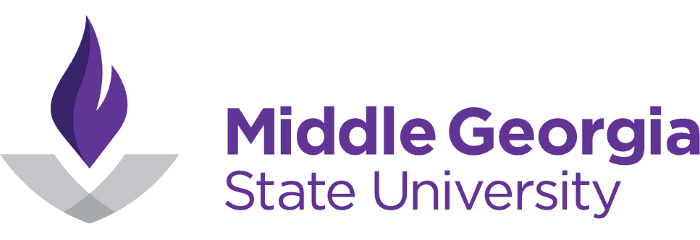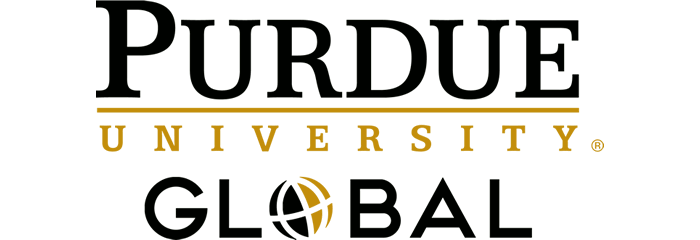2023 Most Affordable Online Cybersecurity Degrees

Cybersecurity degrees online teach valuable skills that are used to protect information and network systems. Students learn how to analyze threats, generate protective measures, and maintain crucial security systems. Graduates with a bachelor's degree in cybersecurity are involved in one of the fastest growing job markets in the country. New threats — whether it's viruses or information hacking — are constantly emerging, putting cyber analysis and forensics skills in high demand.
Most professionals jump-start their career by earning a bachelor's degree online and gaining work experience. Some even go on to earn a master's degree in cybersecurity, where students further develop their skills and prepare for administrative roles in the field. There are also alternative programs that produce similar outcomes, such as a homeland security degree or a computer science degree.
View our methodology for more details about rankings or learn more about us. You can also check out our overall list of the most affordable online degrees for more inspiration.
| Rank | School | Locations | Annual Tuition |
|---|---|---|---|
| Middle Georgia State University | Macon (GA) | $3,410 | |
| Kennesaw State University | Kennesaw (GA) | $5,562 | |
| Georgia Southern University | Statesboro (GA) | $6,169 | |
| University of Alaska Fairbanks | Fairbanks (AK) (and 1 other) | $7,020 | |
| Columbia Southern University | Orange Beach (AL) | $7,050 | |
| University of the Potomac | Multiple Locations | $7,200 | |
| Purdue University Global | Indianapolis (IN) | $7,500 | |
| Western Governors University | Salt Lake City (UT) | $7,550 | |
| American National University | Multiple Locations | $8,185 |
Middle Georgia State University Macon (GA) Middle Georgia State University (MGA) is a medium-sized, public university with a fully online Bachelor of Science in Information Technology - Cyber Security. (They also offer a similar concentration in Cyber Forensics.) This program centers around innovation and flexibility, allowing students to study at their own pace while learning crucial skills in networking, informatics, and application development. The concentration in cybersecurity requires 120 credits and includes core classes in Ethical Hacking, Digital Forensics, and Software Security. Students generally take four years to complete the program on a full-time schedule, including the senior capstone project that's required prior to graduation. Coursework options also feature internship placement with a relevant employer under the direction of the program coordinator. Beyond graduation, students can explore careers as cryptanalysts, information security analysts, or digital forensics analysts. Brightspace is the primary learning management system for MGA's distance learners. The school's resources also include academic advising, career and leadership development, and 24/7 counseling services to assist with mental health.
|
Kennesaw State University Kennesaw (GA) Kennesaw State University (KSU) is a large, public institution, and the school's online Bachelor of Science in Cybersecurity is an interdisciplinary, four-year program that incorporates information technology, business administration, information security and assurance, and criminal justice. The degree requires 120 credits — including general education, major requirements, specialization credits, and electives. Available tracks include cyber crime, systems security, and network security. Students can pursue an approved internship, directed study, or cooperative study that counts toward their elective requirements. Career options for graduates include information security analyst and digital forensics analyst, to name a couple of possibilities. KSU uses Desire2Learn as their primary learning management system for delivering coursework. While students work at their own pace to complete assignments, deadlines and scheduled exams are structured into the curriculum. So, attendance may be required at set times. Distance learners have access to academic advising, tutoring, library resources, IT support, and career development tools.
|
Georgia Southern University Statesboro (GA) The Bachelor of Information Technology - Cybersecurity from Georgia Southern University (Georgia Southern) — a large, public institution — is a 100% online program requiring 124-credit hours. The coursework is taken asynchronously, allowing students the flexibility of studying on their own schedule. However, most full-time students graduate within four years. The IT portion of this program teaches foundational knowledge in computer networks and databases, while the cybersecurity concentration focuses on the best practices in security, which keep businesses and government organizations safe from infiltration. Classes include Digital and Computer Forensics, Ethical Hacking, and Network Security. An IT-related internship is also required to graduate. Career opportunities upon graduation include database architect, application developer, and systems administrator. Georgia Southern uses the digital learning platform, Desire2Learn, for all online coursework, classroom discussions, and lectures. Faculty may also decide to use other software, such as Zoom, Turnitin, and YuJa. Additionally, online students have access to career development support for seeking employment post-graduation, including job fairs and career events. They may also receive free online tutoring and a student success coach to assist them with any academic issues they may encounter.
|
University of Alaska Fairbanks Fairbanks (AK) (and 1 other) University of Alaska Fairbanks (UAF) is a medium-sized, public institution that offers a Bachelor of Security and Emergency Management - Cybersecurity and Information Technology Management, which is focused on developing real world skills for students looking to join the cyber sector of emergency preparedness organizations. This unique blended program prepares graduates for roles with the Department of Homeland Security, such as a cybersecurity specialist or privacy analyst. Core classes include Cybersecurity Management, Cybersecurity Resilience, and Cybersecurity — Fraud and Law. Students are also required to complete an internship in Emergency Management. Students can take this 120-credit hour program entirely online or in a hybrid format. Most students complete all required coursework in four years while studying full-time. UAF uses Canvas for their remote-learning initiatives. Online students can also access peer mentoring and tutoring, career and graduation assistance, as well as a laptop loan program.
|
Columbia Southern University Learn more about how we make money."> Orange Beach (AL) Columbia Southern University (CSU) is a medium-sized, private institution offering a fully online Bachelor of Science in Information Systems and Cyber Security. This 120-credit program helps students learn how to analyze systems securities and develops their skills in intrusion detection and countermeasure operations. Virtual labs are utilized to properly train students in a remote environment, alongside core classes in IT Ethics and Professionalism, Planning and Audits, and IS Disaster Recovery — all of which students complete through the e-learning platform, Blackboard. In order to graduate, students must also develop a corporate IT protection plan as part of their senior capstone project. CSU offers student support services through academic advising and career assistance. Remote learners can also take advantage of their Remote Proctor Now program, which allows for remote test-taking. Additionally, there are various ways to progress through the program, such as flexible start dates and opportunities for students to pick their own graduation plan and completion timeline. IT and cybersecurity graduates may go on to seek employment as security specialists, penetration testers, or IT security consultants.
|
University of the Potomac Multiple Locations University of the Potomac (UOTP) offers two four-year degrees in the field of cybersecurity that are 120 credits each. The Bachelor of Science in Computer Science - Cybersecurity covers the skills needed to design, build, and optimize software with a focus on cybersecurity through core classes, such as Firewalls for Security, Network Security Design, and Computer Networking and Telecommunications. The Bachelor of Science in Cybersecurity, however, focuses more on cybercrime and protecting digital resources from hacking and viruses. Core classes for this degree include Cyber Law, Network Security Management, and Computer Systems Technology. Career outcomes may differ slightly, with the bachelor's in cybersecurity allowing for enterprise protection roles, such as cyber analyst or cryptographer, while the computer science bachelor's with a concentration in cybersecurity may broaden career options to include software engineer or database administrator. UOTP is a small, private institution featuring career development services and student advising through personal counseling. Students can complete either degree 100% online through Blackboard, or they can participate in a hybrid format that requires some on-campus learning.
|
Purdue University Global Learn more about how we make money."> Indianapolis (IN) Purdue University Global (Purdue Global) is a large, public branch of Purdue University that specializes in online programs. Their Bachelor of Science in Cybersecurity is a full-time, 120-credit degree exploring the skills and knowledge needed to protect entities from cyber attacks. There are six concentrations available for this program, such as Supply Chain Management and Logistics or Game Development. Students learn to assess vulnerabilities, design security measures, and develop solutions. While the degree generally takes four years to complete, PU Global offers an accelerated track for students with previous college or career experience. It can be completed in just 10 weeks and includes an internship for students to develop real world experience. Graduates of Purdue Global may seek employment in a variety of fields, but this is mainly dependent on their concentration. Job opportunities may include information security analyst, computer network support specialist, or computer network architect. PU Global uses Brightspace for their online coursework and offers career services and academic support for remote students. Core classes include Ethical Hacking, Network Security, and Python Programming.
|
Western Governors University Learn more about how we make money."> Salt Lake City (UT) Western Governors University (WGU) is a large, nonprofit institution offering a Bachelor of Science in Cybersecurity and Information Assurance and a Bachelor of Science in Network Operations and Security. The first cybersecurity program covers secure systems analysis and design, risk management, and hacking countermeasures, while the network operations degree focus includes leadership management, spreadsheets, and general science content. Industry certifications are also built into the programs at no additional cost. These online programs vary in length, depending on schedules and course loads, but the curricula feature common core courses, such as Network and Security, Web Development, and Managing Cloud Security, as well as a written capstone project. WGU students use various tools to access their course materials, including the WGU student portal, electronic textbooks, simulations, library resources, and interactive tutorials. Coursework may include projects, essays, exams, research papers, and video lectures. Learning is asynchronous, and students generally take one course at a time and at their own pace. Around 70% of students finish their degree in four years or less. Program mentors are available to assist students throughout their studies before they enter the workforce as a cybersecurity analyst or cybersecurity engineer.
|
American National University Multiple Locations The Bachelor of Science in Cybersecurity from American National University (ANU) is a comprehensive exploration of modern-day security measures used to protect networks and computers. Students learn about cyber threats and the tactics that prevent them through courses in Mobile Security, Computer Forensics, and Computer Hardware Technology. Overall, 180 credits are required, all of which students can take via the Canvas learning management system in a fully online environment. ANU is a small, for-profit school where enrolled students can seek support through career and academic services, and they can benefit from the school's personal approach to learning. Students can study asynchronously in the evenings and on weekends, allowing them to maintain a professional life alongside their schoolwork. This program can be completed in four years if students choose to study on a full-time schedule.
|
Overview of Online Cybersecurity Degrees
Threats from data breaches, viruses, and scams have become all too common given the increasing reliance on digital interactions in our personal and professional lives. The field of cybersecurity directly counters these risks in this new technological landscape, ensuring that individuals and organizations can continue using information networks safely and securely. A bachelor's degree provides students with up-to-date knowledge of how to conduct digital forensics, map networks, develop web security, and work with emerging technologies.
The field of cybersecurity directly counters risks, ensuring that individuals and organizations can use information networks securely.
Students can pursue an online bachelor’s degree in cybersecurity at the associate, bachelor's, master's, and doctoral levels. While graduate qualifications, such as a master's degree, give students an in-depth understanding of areas including network architecture or cybercrime, a bachelor's can equip them with the tools, practices, software, and legal frameworks to regulate the protection of online space. Online bachelor's degrees are designed to be completed in four years of full-time study. During this time, students typically finish 120-124 credit hours, including a minimum of 35 in cybersecurity topics. Part-time students who take fewer classes per semester often take more than four years to achieve their degree.
While admission requirements can vary depending on how competitive a bachelor's program is, prospective students often need a minimum high school GPA of 2.75, along with a B grade in a STEM class that covers advanced math concepts. Applicants also typically need to submit high school transcripts, letters of recommendation, and personal essays with their application.
How Much Does an Online Cybersecurity Degree Cost?
Multiple factors can affect the cost of a cybersecurity degree. Where tuition is concerned, our ranked programs range from $6,386-$11,460 per year, which is less than the median tuition — $13,919 — for an online bachelor's degree. Online students can further reduce the cost of their education by applying for financial assistance, including federal and state scholarships as well as private grants.
Our Free Application for Federal Student Aid guide includes information on how to apply for various forms of aid.
Online Cybersecurity Courses and Curriculum
In an online cybersecurity bachelor’s program, students gain hands-on experience working with security software and developing skills in critical thinking, problem-solving, and logic. Students enrolled in a cybersecurity bachelor's may choose between several concentrations, including mobile applications, website design and protection, and network management. In many cases, they must complete a capstone project, which is an opportunity to apply their training.
The following is a list of common courses in a cybersecurity bachelor's degree program.
Introduction to Cybersecurity
This is an introductory course in which faculty introduce the foundational principles of internet security. Students investigate the role of cybersecurity analysts, the technology they use, and the areas where they typically work. Some versions of this course also take a historical perspective on cybersecurity’s evolution as a discipline, covering contemporary and possible future challenges faced by professionals in the field.
Cloud Security
With so much information existing in the cloud, cybersecurity professionals need a working understanding of the security aspects of digital storage. Students learn about cloud technology, common threats to remote data servers, and modern practices designed to shore up internet security. This elective typically requires that students have a basic understanding of cybersecurity.
Cyber Law, Policy, and Compliance
Students enroll in this course to study the legal provisions that govern digital space. They learn about ethical hacking, intellectual property, online privacy, and related topics. Given its emphasis on analytical reasoning, this course could inspire students to enter a career in the legal field with special emphasis on cybersecurity regulations.
Cybercrime and Information Warfare
Typically listed as an elective, this class addresses the dangers of online terrorism. Students learn about small- and large-scale digital crime as well as tactics aimed to limit public exposure to such threats. This course may prepare individuals to take a position in digital forensics, an area of law enforcement.
Database Management Systems
This class covers how to construct and maintain secure databases. Students grasp concepts central to the practice of data security, such as modeling, organization, physical storage, and server performance. Covering a variety of widely applicable concepts, this class helps prepare students for entry-level computing roles in multiple sectors.
Project Management
In this class, students learn to integrate online security technology with large-scale projects. They focus specifically on how to apply cybersecurity principles to an organization's long-term goals, while also developing the soft skills necessary to effectively execute online security initiatives.
Accreditation
Colleges and universities must be accredited to prove they meet national standards for academic excellence. This is a voluntary process in which a third party assesses a school's faculty, curricula, program offering, and other educational facilities. Attending an accredited school ensures that students can apply for federal and state financial assistance, as many public scholarships expressly require that aid beneficiaries study at such a college or university.
Students may visit the websites of the U.S. Department of Education or Council of Higher Education to check the accreditation status of their prospective schools.
While regional and national accrediting bodies evaluate schools on an institutional basis, professional organizations appraise individual degree programs to determine whether they meet educational standards in a specific field. It's important to note that bachelor's level degrees in cybersecurity don't require this programmatic assessment to ensure they meet academic standards in this area of study. However, the Accreditation Board for Engineering and Technology nevertheless accredits bachelor's programs based on its own distinct criterion.
Careers with a Cybersecurity Bachelor’s Degree
Cybersecurity professionals are trained to identify, evaluate, and counter online threats. Their tech skills are in demand across a range of industries, including government, education, and healthcare, to name a few. Specifically, these professionals help ensure online safety across various activities on the internet — from renewing driver's licenses and purchasing goods to connecting with others via social media. Below is a list of potential cybersecurity career paths for graduates:
Information Security Analysts
Information security analysts are directly responsible for identifying and preventing cyberattacks. This involves developing online security measures, such as antivirus software or firewalls, and monitoring an organization's computer network for possible threats.
Computer Network Architects
Computer network architects build digital communication infrastructure used daily by individuals and organizations. They work with computer hardware and software to ensure networks are safe from hackers while offering reliable connectivity.
Management Analysts
Management analysts, also known as consultants, advise clients on how to improve their processes. Cybersecurity consultants typically suggest ways for businesses and other organizations to insulate their computer systems from online assaults, such as viruses or malware. Unlike some tech workers, these professionals are generally retained on a contract basis.
Software Developers, Quality Assurance Analysts, and Testers
Software developers, quality assurance analysts, and testers with a background in cybersecurity help determine whether information networks are secure. They use ethical hacking techniques to diagnose potential lapses in online security and suggest ways organizations can address these gaps.
Unsure about pursuing a degree in cybersecurity? Explore additional online programs.
Is an Online Cybersecurity Degree Worth It?
Completing your postsecondary education online requires motivation and time, so it's normal to wonder whether a bachelor's degree is worth it. Additionally, while a cybersecurity program may lead to a lucrative tech career, you should consider whether pursuing this qualification helps you meet your personal goals while staying within your budget. Below are some general pros and cons to help you decide whether an online bachelor's in cybersecurity is right for you.
Potential Benefits
- A cybersecurity degree may lead to future job security. Given that the BLS predicts these occupations will grow at a faster-than-average rate of 33% through 2030, attaining a cybersecurity bachelor's can help ensure that graduates enter this growing job market.
- Cybersecurity professionals enjoy above-average levels of career satisfaction. Over two-thirds — 71% — of employees in this field report being satisfied with their jobs. Many even cite the challenges of working in rapidly evolving environments as a positive quality.
- Getting your degree online can enable you to learn at your own pace. Distance education programs are often delivered asynchronously, allowing you to take classes and complete assignments when convenient. This can make it possible to earn your degree while meeting the demands of a busy schedule.
Potential Drawbacks
- Certifications may be necessary for some career opportunities. A bachelor's degree alone cannot guarantee a cybersecurity graduate will find employment — particularly as employers sometimes require candidates to have specific certifications as evidence of their expertise in a particular area. While certifications can greatly increase the chances of getting a job, they require further financial investment.
- Cybersecurity bootcamps can offer a quicker and cheaper path to a job in tech. While you may not gain an understanding of computer science theory, a bootcamp can equip you with the hands-on skills necessary for a cybersecurity job in a matter of months at a significantly cheaper price than a bachelor's degree.
- Distance education may not offer enough support for some. Unlike on-campus degrees, online learning may limit your interaction with professors and peers. This may prevent you from taking advantage of collaboration and networking opportunities.
Related Articles
2023 Most Affordable Online Master's Degrees in Cybersecurity
Learn about the most affordable colleges for online master's degrees in cybersecurity by exploring our 2023 ranking list of accredited online schools.
By OnlineU Staff Writers | 2/1/2023








